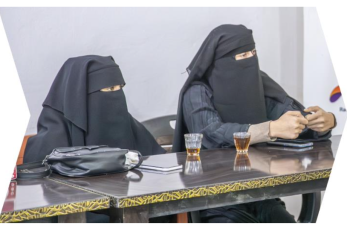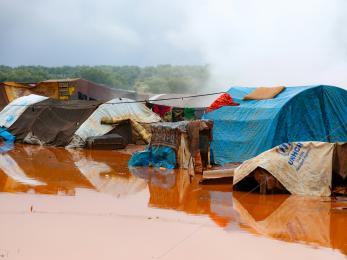Advancing Local Governance in Fragile Settings: Evidence from Northeast Syria

Effective local governance in fragile, conflict-affected settings underpins sustainable peace and community resilience. When central institutions are weak or absent, local governance structures fill the void. However, interventions to bolster local governance suffer significant challenges that undermine implementation and sustainability. Previous research suggests that more representative and participatory processes advance governance outcomes and improve legitimacy. That said, there is limited evidence regarding specific participation and engagement of vulnerable groups in local governance, especially in fragile settings. More specifically, there is sparse research on the Syria context, and recent political shifts and emerging dynamics underscore the urgent need for new insights into how governance can be strengthened on the country’s evolving path forward. In a constrained aid environment, low-cost interventions in strategic fragile settings can deliver return on investment by contributing to stability and avoiding higher costs later.
Using the context of Mercy Corps’ Catalyzing Community Resilience in Northern Syria (CCRNS) program, this research examines how the role of youth in governance programs can shift power and decision-making within and to vulnerable communities. Additionally, the study examined how local partnerships and participatory approaches to governance shape community engagement and responsiveness to governance structures, particularly with fragile and evolving government structures as seen in Syria.
The CCRNS program—funded by the Swiss Agency for Development and Cooperation (SDC)— used Mercy Corps’ signature approach to community mobilization and participatory planning, CATALYSE, which promotes participatory and representative civic engagement, decentralized decision-making, and the empowerment of marginalized groups. We found that by anchoring decision-making in participatory planning and engagements that were representative, these systems rebuilt trust, strengthened social cohesion, and advanced governance.
Specifically, the study shows that:
- Empowering youth as change agents advances local governance. CCRNS turned vulnerable youth into credible community brokers by pairing dedicated youth committees with practical training in communication and problem-solving. These young leaders successfully negotiated service improvements and communicated community needs and priorities, which increased government responsiveness and built public trust—showing that youth engagement can make governance more effective, even in fragile settings.
- Shifting power to the communities builds trust between community members and local authorities. By empowering youth committees to gather community priorities and secure rapid fixes, CCRNS shifted decision-making power back to communities, creating a visible feedback loop that rebuilt trust in local authorities. This iterative, community-driven process created a clear feedback loop where citizens saw their voices lead to concrete changes—helping to restore vertical trust in government, even in highly fragile, post-conflict settings.
- Fostering fairness and engagement through CATALYSE strengthens social cohesion. The CATALYSE approach strengthened social cohesion in Al-Diriyah by bringing together internally displaced people, returnees, and long-term residents for joint training sessions. These sessions built empathy and broke down stereotypes among IDPs, returnees, and long-term residents. Participants reported shifting from confrontation to calm, collaborative problem-solving, and working together on shared tasks helped build trust across social divides.
- CATALYSE influenced positive shifts in societal expectations for women and men. Equal representation of men and women on CCRNS youth committees unexpectedly shifted social norms in Al-Diriyah. The training empowered women to participate alongside men in public decision-making, visibly challenging norms that once barred collaboration of men and women. As communities observed women working alongside men and engaging with authorities, traditional resistance began to soften. This shows that combining formal quotas with hands-on skills training can create meaningful shifts in how the roles of men and women are viewed, even in fragile settings.
Based on these findings, governments, donors, civil society, and implementing actors should consider the following:
- Institutionalize and sustain youth‐led governance mechanisms. Embed rotating youth committees within local decision-making structures as part of long-term governance and peacebuilding strategies. Support institutionalization through formal recognition, mentorship of new members, and integration of proven approaches like CATALYSE.
- Scale training for social cohesion and fair opportunities for women and men. Mainstream mixed-group, fairness-centered training to strengthen social cohesion and expand women’s public and household influence.
- Fund community-driven governance for accountability and resilience. Invest in local governance mechanisms that deliver visible results, strengthen citizen-state feedback loops, and promote long-term ownership in fragile contexts.

